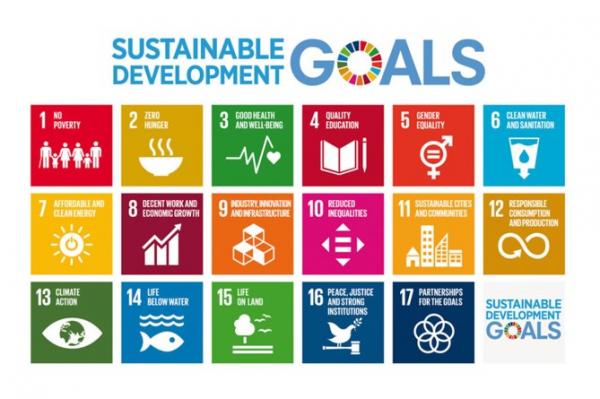Sustainable Development Goals and Governance - Should Directors be Activitsts

The first Belgian Barometer (1) on the integration of Sustainable Development Goals (SDGs) by organisations has just been published. Result of a study based on the responses of more than 400 companies and organisations, the originality of this Barometer is to position SDGs as potential game changers for practicing Corporate Responsibility in Belgium.
Should such game changers be examined from a governance perspective? What role would a director have to play in integrating changes that will affect the future of the company, but perhaps also the future of all of us?
The increasing pressure exerted by multiple stakeholders in terms of sustainable development provides a first element of response. We observe a rapid increase in the use of non-financial performance measures to decide whether or not to finance or invest in a company. Projects which are considered to have a too high environmental or social risk consequently could be excluded from funding. Some funds already make compliance with strict CSR KPIs a condition to receive financing.
The legislative landscape is also changing: EU law (2) already requires large companies to disclose, in a consistent and comparable way, certain information on how they operate and manage social and environmental challenges. Smaller companies, related parties of the economic chain, are also affected by these measures. And citizen pressure may lead legislators to introduce constraining reinforcements. Companies that do not take these changes into account will become more vulnerable. Informed directors have therefore a strong interest in carefully monitoring these outbreaks; an enlightened governance that can be decisive for getting new funding or partnerships.
Moreover, decision-making of which the implications have not been carefully considered and concerted in sustainable societal and environmental terms, can ultimately prove to be very detrimental. With impact on the company's assets, which may result in a drop in sales or share value following boycotts or other punitive movements, or even loss of reputation. At a time when social networks are accelerating the spreading of information, mismanaging the reputational risk of a decision can have serious consequences.
The monitoring role of the board should now more systematically integrate the social and environmental responsibility dimension. Ultimately accountable to shareholders for the long-term stewardship of the company, the board of directors should be responsible for the long-term resilience of the company towards changes in the environment. Failure to do so may constitute a breach of the directors' duties.
In this respect, directors’ duty of diligence, their right to information and to investigate to that end, will require an increased ability to question sustainable development. Do boards receive the right information to decide, do they consider the right KPI’s, do they ask the right questions on sustainability efforts? Is sustainable development an end in itself or part of an integrated business strategy? For example, have climate change risks been materially identified?
As highlighted by "The Board Leadership in Corporate Sustainability Report' (3), the quality of responses will impact the company's ability to create long-term value. Encouragingly, this report notes that almost a fifth of the boards surveyed have a dedicated board-level sustainability committee. The same report argues in favour of sustainable development expertise or mindset as selection criteria for the appointment of board members. The World Economic Forum Report (4) provides a set of principles and questions that pragmatically guide organisations’ approach and thinking on climate governance.
Beyond the reaction to the risks of ignoring these changes, a second response path, generating opportunities, links sustainable development and innovation. Most of the respondents to the Belgian Barometer have already implemented concrete actions that contribute to sustainable development, notably through innovative partnerships. The Barometer recommends that such partnerships should be stimulated as a matter of priority. These partnerships most often involve collaborations between organisations with different operating modes (public/private, intersectoral,...) and require learning new ways of collaboration and co-creation. New ways of thinking and acting together, which can create new opportunities. The board has an essential role to play not only in the strategic choice of the right partner, but also in the development of a partnership that is appropriate to the company's objectives, and in ensuring the resources required for its success
The Belgian Barometer notes that most respondents focus on SDGs directly related to their core business. While this behaviour may be perfectly understandable from a practical point of view, Belgium identifies weaknesses in SDGs 12 (responsible consumption and production), 13 (climate change), 14 (life below water) and 15 (life on land), these objectives are not identified as priorities by respondents. Companies and government have a role to play in SDGs and a shared responsibility. The Barometer underlines that there is a need for increasing both awareness of and knowledge about the SDGs within organizations. SDGs are a set of interdependent objectives, which have to be achieved collectively for the survival of the planet, and therefore indivisible; with possible impacts on the entire value chain of the company. Identifying them through a business materiality analysis is crucial.
SDGs can be challenging for the visionary capacity expected of a board and its leadership role. The Barometer confirms, in this respect, that organisations involved in SDG partnerships are rather those whose coordinator sits at board level. This could also be interpreted in favour of taking SDGs more seriously when this topic is asserted at board level.
The SDGs offer in fact a remarkable asset for business leaders: a common language for all stakeholders. From customer to employee, from suppliers to partners, everyone is involved, can understand the SDGs and their importance, and may start thinking about how to contribute to them. A major asset for meaningfully federating all stakeholders around a shared project, this alignment lever deserves to be carefully examined: it could be a key factor for business success.
Many elements encouraging directors to be activists for the changes required to reach the SDGs, changes that will impact the future of companies, and beyond.
Footnotes
(1) https://uclouvain.be/en/research-institutes/lourim/news/sdg-barometer-belgium-2018.html
(3) https://boardagenda.com/resource/leadership-in-corporate-sustainability-european-report-2018/

